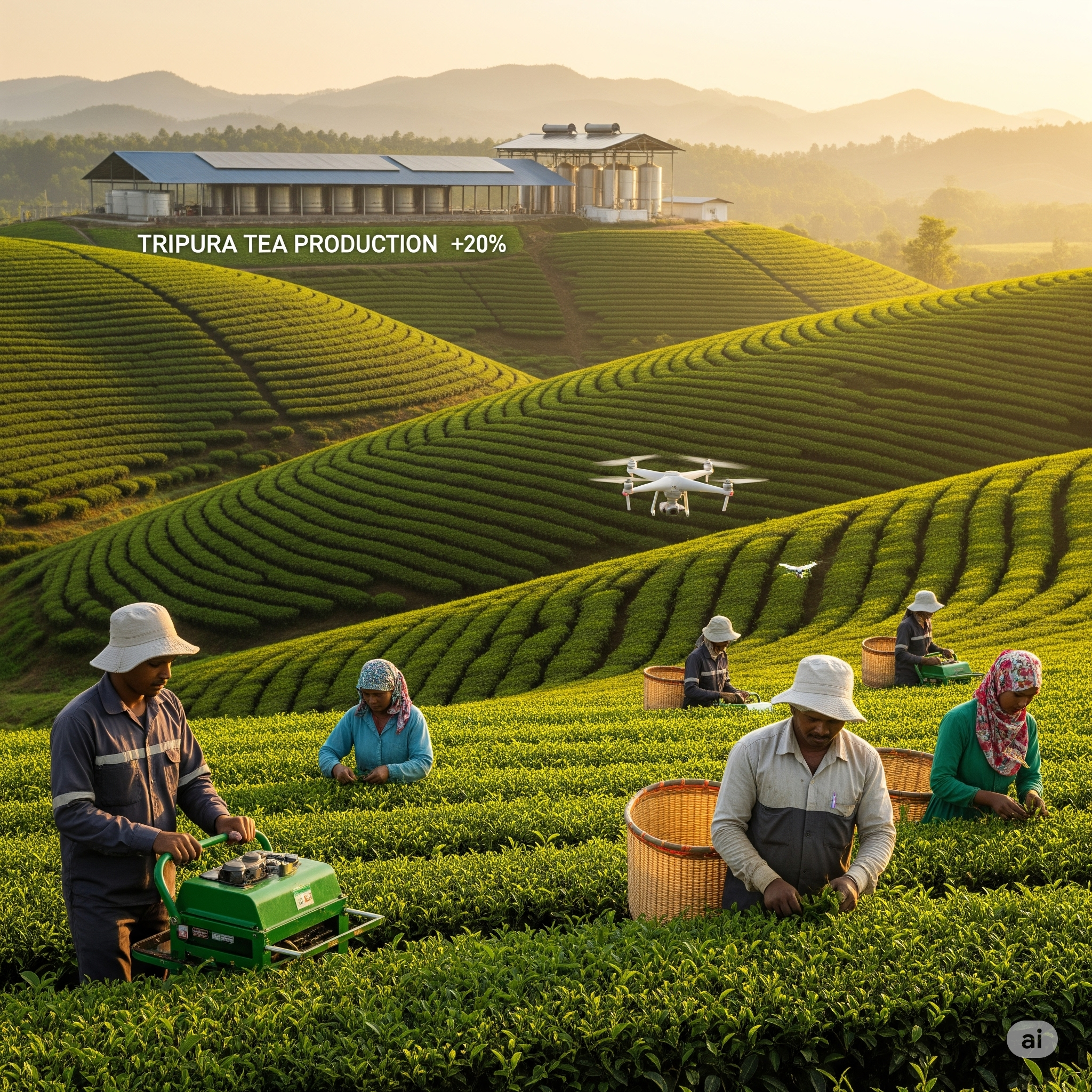
Tripura Achieves 20% Increase in Tea Production with Modern Farming Techniques
- admin
- August 10, 2025
- Uncategorized
- 0 Comments
Tripura, one of India’s emerging tea-producing states, has reported a 20% rise in tea production in 2025, thanks to the adoption of modern farming techniques and strategic government support. This achievement not only boosts the state’s economy but also underscores its growing significance in India’s tea industry.
Key Factors Behind the Growth
- Modern Agricultural Practices:
Farmers have adopted techniques like drip irrigation, precision farming, and soil health monitoring, improving yield and quality.
(Tea Development Corporation of Tripura) - Government Support:
Under the Mission for Integrated Development of Horticulture (MIDH), tea growers received subsidies for machinery, fertilizers, and pest control measures. - Climate Adaptation Strategies:
Research institutions in Tripura are helping farmers implement climate-resilient practices, ensuring consistent production despite changing weather patterns.
Impact on the Local Economy
- Increased Revenue:
The tea industry’s contribution to the state’s GDP has risen significantly, with exports generating over ₹200 crorein 2025. - Employment Opportunities:
The sector has created 10,000+ jobs, empowering rural communities and enhancing livelihoods for small-scale tea growers. - Export Expansion:
Tripura’s tea is now exported to markets in Europe and Middle East, gaining recognition for its distinct flavor and organic cultivation.
Future Goals for Tripura’s Tea Industry
- Organic Certification:
Efforts are underway to certify more tea estates as organic, tapping into premium global markets. - Digital Marketing Initiatives:
The government plans to promote Tripura tea through e-commerce platforms, improving market access for small growers. - Sustainable Practices:
Focus on achieving zero-waste production by recycling tea waste into bio-fertilizers and energy sources.
Brewing Success for Tripura’s Tea Industry
Tripura’s tea industry is a shining example of how modern farming techniques and government intervention can transform traditional agriculture. With rising production and expanding markets, the state is set to play a pivotal role in India’s tea economy.




